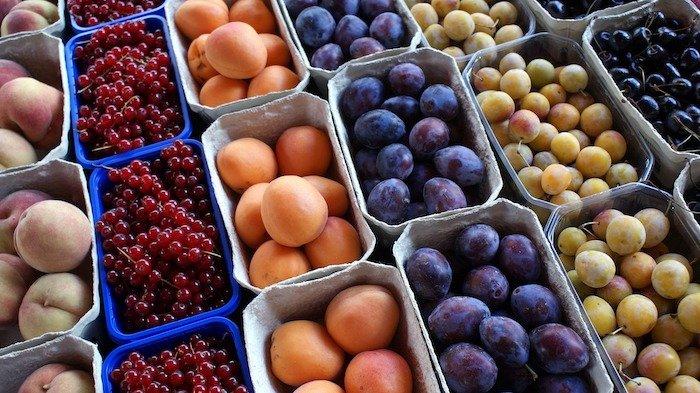Chlorate is the salt of chloric acid. It is released as a by-product when disinfectants are used and when drinking water is treated, causing residues of chlorate to appear in food. Repeated ingestion of chlorate can lead to inhibited iodine absorption in humans, which can have health effects, especially for risk groups such as thyroid patients, newborns and children.
Residues of chlorate are frequently found in frozen vegetables, fruit juices and salads. It occurs as a result of glazing frozen vegetables, diluting concentrates for juice, and washing processes with chlorinated water.
The Annex to Regulation (EU) 2020/749 sets out the binding maximum residue levels for individual product groups. For example, the following MRLs apply:
- Citrus fruit, pome fruit, stone fruit: 0.05 mg/kg chlorate
- Nuts: 0,1 mg/kg chlorate
- Garlic, cultivated and wild mushrooms: 0,7 mg/kg chlorate
- Legumes: 0,35 mg/kg chlorate
- Spices: 0,07 mg/kg chlorate
In addition, on 20 May 2020, the European Commission published Regulation (EU) 2020/685 amending Regulation (EC) No 1881/2006 regarding maximum levels for perchlorate in foodstuffs, which will come into effect on 1 July 2020. The transitional regulation applies here that products placed on the market before 01.07.2020 may continue to be sold until their best-before or expiry date.
Perchlorate is the salt of perchloric acid. It can also be introduced into foodstuffs as a by-product of disinfectants and leads to an inhibited absorption of iodine.
The new maximum residue levels (MRLs) for perchlorate are as follows::
- Fruits and vegetables: 0.05 mg/kg perchlorate
- This excludes Cucurbitaceae and kale with 0,10 mg/kg perchlorate, and leafy vegetables and fresh herbs with 0,50 mg/kg perchlorate
- Herbal and fruit tea: 0,75 mg/kg perchlorate
- Infant formulae, follow-on formulae, foods for special medical purposes for infants and young children and food for infants: 0,01 mg/kg perchlorate
- Baby food: 0,02 mg/kg perchlorate
- Processed cereal-based foods: 0,01 mg/kg perchlorate
The new MRLs will apply when the Regulation come into effect, and will be valid for all EU Member States.
bilacon supports you in complying with the new maximum residue levels
bilacon supports you in complying with the new maximum levels for chlorate and perchlorate to help you continue to market your products safely in compliance with the new regulations. Using the LC-MS/MS method, bilacon is able to provide its customers with fast and reliable analysis results.
With competence centres for polar pesticides in Rotterdam and Berlin, bilacon can react flexibly to your wishes.
Would you like to learn more about our services? Please contact our expert, we will be happy to help you!
Tentamus Group GmbH was founded in 2011. Tentamus is a global product and safety group with a core presence in Europe, UK, Israel, China, Japan, India and the USA. Accredited and licensed Tentamus Group tests, audits and consults on all products involving the human body (food & feed, pharmaceuticals & medical, agrosciences, cosmetics, agriculture & environment and nutraceutical & supplements). Tentamus Group is represented in over 65 locations worldwide. More than 2,500 highly-trained staff members work in over 2.5 million square feet of laboratory and office spaces. For further information please visit www.tentamus.com.
Tentamus Group GmbH
An der Industriebahn 26
13088 Berlin
Telefon: +49 (30) 206038-230
Telefax: +49 (30) 206038-190
http://www.tentamus.com
Head of Instrumental Analysis bilacon GmbH
Telefon: +49 30 206038320
E-Mail: roy.sperling@tentamus.com
![]()
